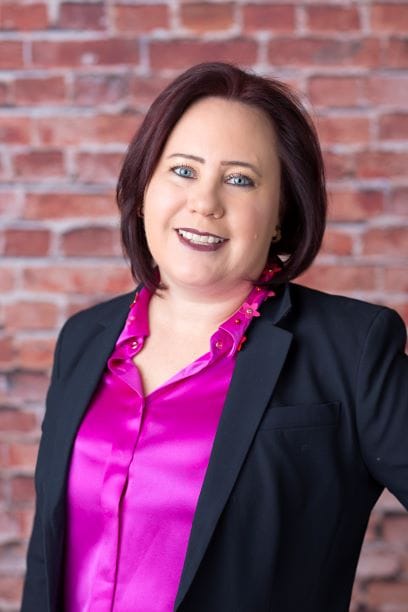Partner Maggie Miller, Esq., has spent her career working with a myriad of school districts in New Jersey. Her Special Education Law experience is second to none in the state. In the final part of her series What I learned in Special Ed Litigation, Maggie discusses Individualized Education Plan ( IEP) evaluations, goals and objectives.

Reevaluations
How often does your child study team do re-evaluations? If you currently do not make a practice of conducting a reevaluation every three years…..START! You never know when or why a parent is going to file for Due Process, and you don’t want to be “that” district, relying on evaluations from primary school to draft an IEP for a rising Freshman. It is better for the district to have the most updated information at a due process hearing.
Eligibility Meeting Participation
Is the student eligible or not? In the best case, not everyone agrees, and in the worst case, no one agrees, so make sure you have the right participants at the meeting. Who is a part of the meeting?
• The parent: this goes without saying
• A teacher who is knowledgeable about the student’s educational performance or a teacher who is knowledgeable about the District’s program
• The student, as appropriate
• At least one CST Member who participated in the evaluation
• The Case Manager
• Other appropriate individuals at the discretion of the parent or School District
• Initial Eligibility personnel – certified school personnel referring the student as potentially having a disability, or the school principal or designee if they choose to participate
Eligibility Meeting Participation – Special Considerations
In order to be prepared for you meeting, make sure you have all the appropriate evaluations. Providing incomplete, inaccurate or documentation that is too broad will only muddy the waters. Here are some guidelines for special considerations:
• “Auditory Impaired” – An audiological evaluation by a specialist qualified in the field of audiology, and a speech and language evaluation by a certified speech-language specialist are required;
• “Autistic” – An assessment by a certified speech-language specialist and an assessment by a physician trained in neurodevelopmental are required;
• “Communication Impairment” – When the area of suspected disability is language, assessment by a certified speech-language specialist and assessment to establish the educational impact are required. The speech-language specialist shall be considered a child study team member.
• “Orthopedically Impaired” – A medical assessment documenting the orthopedic condition is required.
• “Other Health Impaired” – A medical assessment documenting the health problem is required.
The ACTUAL IEP and #ThingsIlearnedinLitigation
Curriculum Vitae for Experts
If you do go to court, realize your Child Study Team (CST) members ARE experts in their field. You qualify as an expert…. you should look like one! In order to be qualified as an expert, make sure you have a CV – similar to a resume – for your experts. In the CV, you WANT TO BRAG about how educated, trained, and experienced your experts are. In order to present your experts correctly make sure you have:
• Education
• Licenses
• Certifications
• Trainings and Professional Development
• Articles, speaking engagements, contributions, etc.
• Update, update, update (if the last publication is 1977, you might have a problem)
IEP – Present Levels of Academic Achievement and Performance (PLAFFP)
How do measure your students success with their IEP? Make sure the information provided is meaningful and objective. Here are some things to remember:
• Use as much objective data as possible
• Do NOT refer to grade level functioning unless it is attached to objective data
• What is the grade level functioning based on?
• Does the grade level functioning match the testing?
• Grade level functioning should NEVER be subjective
• BE AWARE: Does grade level functioning show progress?
IEP – GOALS AND OBJECTIVES
Without goals and objectives, you cannot gage progress. Here are some questions to ask to make sure you and your students are getting the most out of their IEP’s:
• Do the Goals and Objectives change from year to year
• If they are….are they changing for the right reason?
• Are they a logical progression from year to year?
• What are you doing with goals that have not been achieved??
• Do they relate to the subject matter being taught? Especially important when progressing from school to school? Ex.) Geometry when student has Algebra
• Make sure the goals and objectives make sense, and make sure you change them if they do not. Each student and IEP is different, so goals should be aligned with the student’s level of functioning
• The previous year’s goals and objectives should be reviewed and matched to the upcoming year – be especially careful when the IEP starts or ends mid year!
Questions? IEP issues? Maggie is there to help. Reach out to her here.
 About the Author
About the Author
Maggie concentrates her practice in the areas of education, special education, and labor and employment law, including representing boards of education in all special education and tenure and employment matters. Maggie will advise the board in all phases of Special Education Litigation. From an initial IEP meeting to mediation, due process, and federal appeal, Maggie keeps the Board’s goals and vision at the forefront while understanding budgetary and district confines. Whatever the Board’s goal, Maggie will fight to attain it.
She also represents public entities in all labor-related matters, including arbitrations, unfair practice proceedings and disciplinary and termination appeals before the Civil Service Commission and other state agencies, including the Department of Education, Public Employment Relations Commission, and Division on Civil Rights.

 About the Author
About the Author